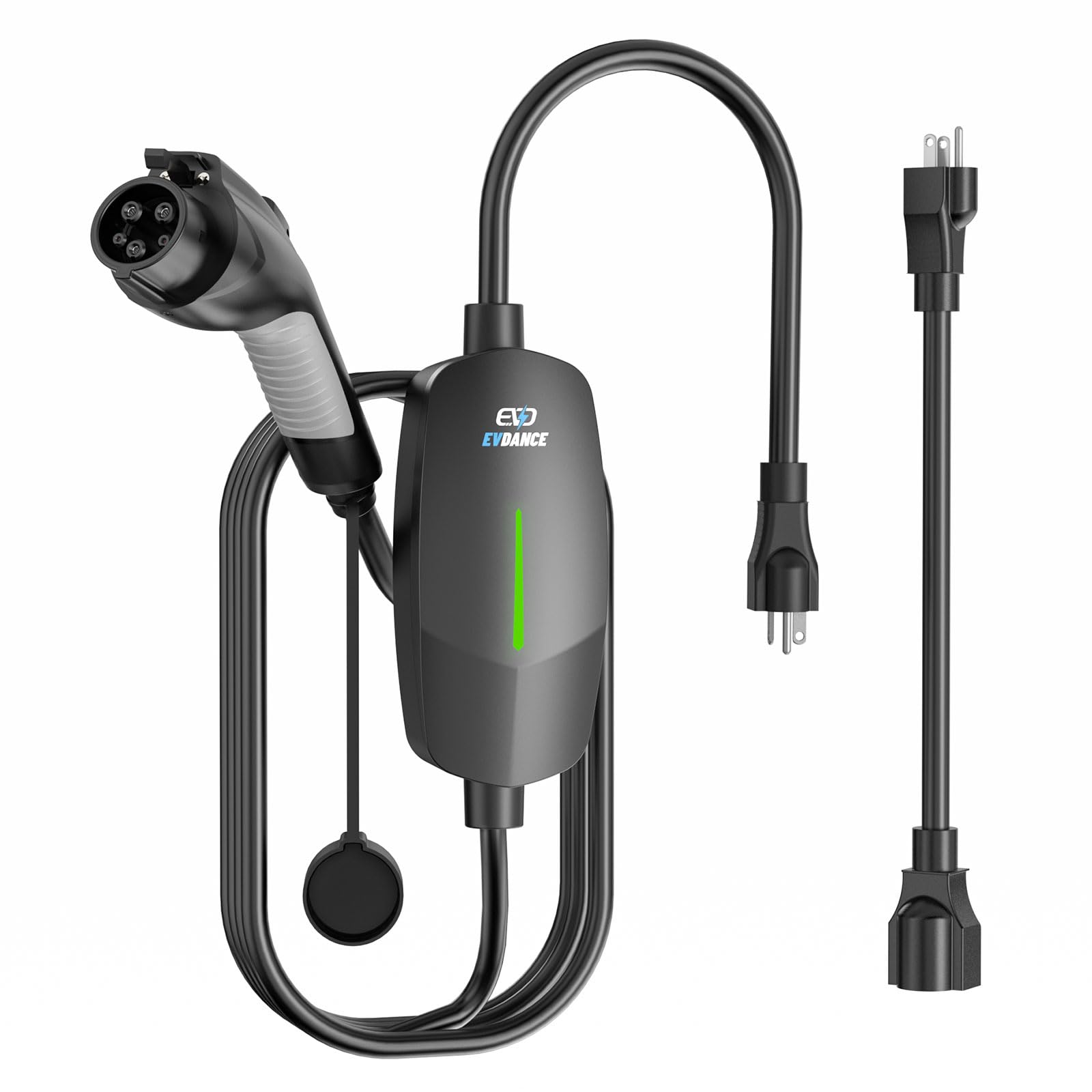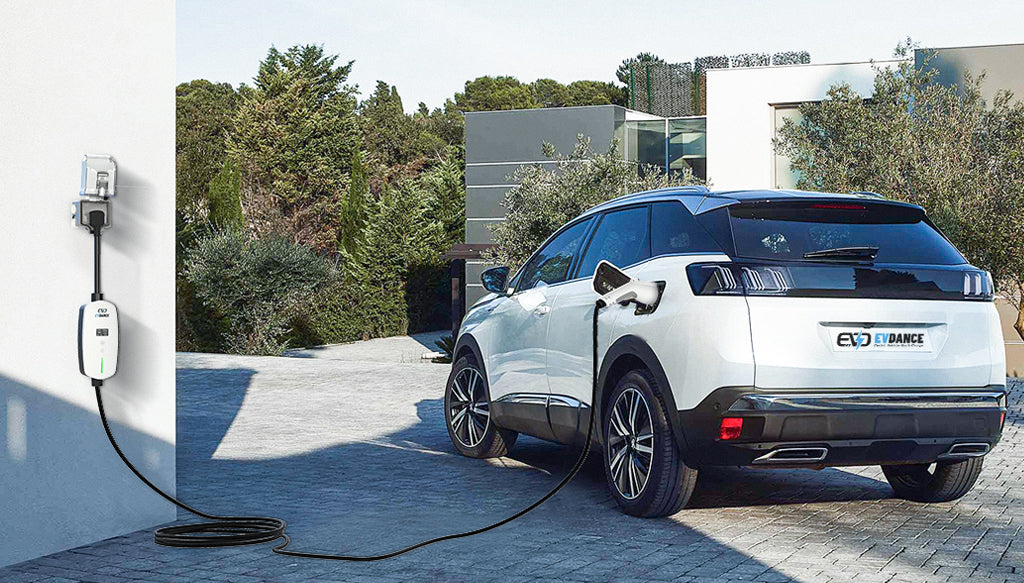With the rise in popularity of electric vehicles (EVs), many car owners are considering installing charging stations at home for convenient and cost-effective charging. In this article, we will explore the cost associated with installing an EV charger at home in the USA. We will also provide recommendations for EVDANCE Level 1 and Level 2 chargers.
I. Factors Affecting the Cost of Installing an EV Charger:
Electrical Panel Capacity:
The capacity of your electrical panel plays a significant role in determining the cost of installation. Upgrading your electrical panel might be necessary if it does not have enough capacity to support an EV charger.
Wiring and Circuit Installation:
The cost for wiring and circuit installation will depend on the distance between your electrical panel and the desired location of the charging station. The complexity of the installation can also affect the cost.
Permitting and Inspection:
Local permits and inspections are often required for EV charger installations. The associated fees vary by location and should be considered when budgeting for the installation.
Charger Type:
The cost of the charger itself will depend on the type and brand you choose. Level 1 and Level 2 chargers are commonly used for home installations.
II. Cost of Installing an EV Charger at Home:
Level 1 Charger:
A Level 1 charger is the most basic option for home charging, typically provided with the purchase of an EV. These chargers plug into a standard 120V household outlet.
The cost of a Level 1 charger ranges from $100 to $500, depending on the brand and additional features.
Installation costs for a Level 1 charger are minimal, as it can be plugged into an existing outlet.
Level 2 Charger:
A Level 2 charger provides faster charging compared to Level 1 chargers. These chargers require a dedicated 240V circuit.
The cost of a Level 2 charger ranges from $400 to $1,500, depending on the brand and charging capacity.
Installation costs for a Level 2 charger typically range from $500 to $2,500, depending on factors such as electrical panel upgrades and wiring distance.
III. Cost of Connecting an EV Charger at Home based on Connection Type:
Hardwired Connection:
A hardwired connection involves permanently connecting the EV charger to your electrical panel. This type of installation requires an electrician to run wires through conduits for a clean and professional look.
The cost of installation for a hardwired connection typically ranges from $500 to $2,500, depending on factors such as the distance from the electrical panel, complexity of wiring, and any necessary electrical panel upgrades.
Permitting and inspection fees are usually involved with a hardwired connection, adding to the overall cost.
Plug-In Connection:
A plug-in connection allows for more flexibility as it involves using a NEMA 14-50 outlet, similar to those used for electric stoves or dryers. The EV charger is plugged into this outlet, making it easier to move the charger if needed.
The cost of installation for a plug-in connection is generally lower compared to a hardwired connection, typically ranging from $200 to $1,000.
However, it is important to ensure that your electrical panel can accommodate the additional load from the EV charger.
Wireless Connection:
Wireless connections eliminate the need for physical wires between the charger and the vehicle. This technology is still relatively new and may require additional equipment and installation costs.
The cost of installation for a wireless connection can range from $1,000 to $3,000 or more, depending on factors such as brand, range, and compatibility with your EV model.
As wireless technology advances, installation costs are expected to decrease over time.
It is important to note that while wireless connections offer convenience and ease of installation, traditional hardwired and plug-in connections are more commonly used, as they are generally more cost-effective and reliable.
IV. Recommendations: EVDANCE Level 1 and Level 2 Chargers
EVDANCE Level 1 Charger:
The EVDANCE Level 1 Charger is a reliable and affordable option for home charging. It is compatible with all EVs and provides a safe and efficient charging experience.
With a price range of $150 to $300, the EVDANCE Level 1 Charger offers excellent value for money.
Installation is straightforward, as it can be plugged into a standard 120V outlet.

EVDANCE Level 2 Charger:
For faster charging and increased convenience, the EVDANCE Level 2 Charger is a recommended option.
With a price range of $600 to $1,200, the EVDANCE Level 2 Charger offers higher charging capacity and advanced features for optimal charging performance.
Professional installation is recommended for Level 2 chargers to ensure safety and compliance with electrical regulations.
Installing an EV charger at home is becoming increasingly popular as more people transition to electric vehicles. The cost of installation depends on various factors such as electrical panel capacity, wiring distance, and charger type. However, with options like the EVDANCE Level 1 and Level 2 chargers, homeowners can find affordable and reliable solutions for their charging needs. As EV adoption continues to grow, investing in a home charging station is a smart choice for EV owners in the USA.








Share:
Why would I need an EVDANCE CCS to Tesla adapter?
Top 10 Best Electric Cars in the USA in 2023